Contents

THE PUTNEY DEBATES

REVOLUTIONS
A series of classic texts by revolutionaries in both thought and deed.
Each book includes an introduction by a major contemporary writer
illustrating how these figures continue to speak to readers today.
THE PUTNEY DEBATES

THE LEVELLERS
INTRODUCTION BY GEOFFREY ROBERTSON QC
TEXTS SELECTED AND ANNOTATED BY PHILIP BAKER

This edition published by Verso 2018
First published by Verso 2007
Introduction Geoffrey Robertson 2007, 2018
Collection Verso 2007, 2018
All rights reserved
The moral rights of the author have been asserted
1 3 5 7 9 10 8 6 4 2
Verso
UK: 6 Meard Street, London W1F 0EG
US: 20 Jay Street, Suite 1010, Brooklyn, NY 11201
versobooks.com
Verso is the imprint of New Left Books
ISBN-13: 978-1-78873-141-6
ISBN-13: 978-1-78873-142-3 (UK EBK)
ISBN-13: 978-1-78873-143-0 (US EBK)
British Library Cataloguing in Publication Data
A catalogue record for this book is available from the British Library
Library of Congress Cataloging-in-Publication Data
A catalog record for this book is available from the Library of Congress
Typeset in Bembo by Hewer Text UK Ltd, Edinburgh
Printed and bound by CPI Group (UK) Ltd, Croydon, CR0 4YY
CONTENTS
THE LEVELLERS: THE PUTNEY
DEBATES
Geoffrey Robertson QC
Our cause and principles do through their own natural truth and lustre get ground in mens understandings so that though we fail, our truths prosper. And posterity we doubt not shall reap the benefit of our endeavours.
John Lilburne, Englands New Chains Discovered, March 1649
Gordon Brown, in his first week as Prime Minister, offered to vouchsafe his country a written constitution.
It is an abiding irony that the United Kingdom, a country that has more history to be proud of than any other, should be so reluctant to acknowledge the most significant part of it. The civil war years, 16419, first established what today are regarded as universal values the supremacy of parliament, the independence of the judiciary, the abolition of torture and of executive courts, comparative freedom of speech and toleration of different forms of religious worship. Yet we allow our children to leave school at sixteen knowing nothing of this period: they study (if they study optional history at all) the rise and fall of Hitler and the rise and rise of the United States: the struggle of civil rights takes place, in their curriculum, in Little Rock and Mississippi, never at Naseby or Putney. They are permitted to notice the civil war in passing, at the age of thirteen, when the government education website (designed, apparently, by unreconstructed royalists) enjoins teachers to focus on Cromwell as a man of vengeance, through violent incidents in that year of reckoning of 1649. It was a year described by parliament at the time as the first year of freedom, by Gods blessing restored, and it is a serious indictment of those charged to teach our children well that they fail to teach them at all about the principles of representative government that were established in this era, or about those who fought and died for them.
History that is taught through the indulged lives of kings and queens cannot cope with the reality of a British republic: it is euphemistically called The Interregnum and the men who led it are demonized as regicides. In fact, they had no alternative but to remove Charles I if the fundamentals of representative government were to be observed in England, because he was incorrigible in planning war on his own people to restore his supreme power. It was during the debates at Putney that he began to be described as a man of blood, whose punishment was not so much a matter of cruel necessity as a matter of justice. Anachronistic distaste for the kings execution must not obscure the remarkable political developments inspired by the Levellers that preceded it. Charles I had the purest form of sovereign immunity he was the sovereign yet the message that went out from the debates at Putney, that the law was no respecter of persons, eventually put him in the dock.
An Agreement of the People, the set of constitutional proposals debated in late October and early November 1647, was the work of Levellers, a group not easy to define, either as a political collective or as architects of a coherent constitutional programme. Their individual leaders frequently changed allegiances and political positions. The movement emerged in London towards the end of the civil war, initially in support of the charismatic John Lilburne Freeborn John a favourite of the crowd for his magnificent defiance of the Star Chamber. They were essentially polemicists and pamphleteers rather than politicians, notable for scattergun criticism of all who wielded power, whether the king himself or leaders in the parliament and the army or in the city guilds. Their constituency in this new era of press freedom was drawn from literate tradesmen and soldiers engaged by arguments over what form government should take and readily influenced by satirical jeremiads against the unrepresentative nature of the House of Commons, with its rotten boroughs and its unequal electorates, under a franchise that allowed votes only to men of landed property. As Puritans who craved liberty of conscience, the Leveller writers despised the Presbyterian MPs who looked to restoration of the monarch as the means of imposing their religion upon the kingdom. As proponents of free trade (i.e. abolition of guilds and monopolies), their cause rallied independent merchants and tradesmen. By urging fair treatment and immunity for soldiers who had successfully fought against royal tyranny, they found a ready constituency among the ranks of an army threatened with disbandment.
The New Model army, victorious for parliament in the first civil war, had set up a General Council, on which its leaders (Fairfax, Cromwell and Cromwells son-in-law Henry Ireton) sat with soldiers representatives (called agents or, in a neutral sense, agitators). In the autumn of 1647 Leveller-inspired dissent had reached such a pitch that the leaders invited these representatives, together with some of the civilian Levellers who were fanning it, to a council meeting at St Marys church in Putney to thrash out their differences. The Generals (grandees as Lilburne mockingly called them) intended to debate The Heads of the Proposals, the settlement terms that they had put to the king, requiring him to share some power with a parliament elected on the same narrow franchise as before. Instead, on the eve of the debate, the Levellers printed and circulated An Agreement of the People, a simple and moving charter calling for a more representative parliament, for freedom of conscience and religious toleration, and for an end to all discrimination on grounds of tenure, estate, charter, degree, birth or place. In a calculated rebuke to the Generals for their meetings with the monarch who had started the civil war, the Agreement bemoaned the woeful experience of being made to depend for settlement of our peace and freedom upon him who intended our bondage and brought cruel war upon us.
By tabling the Agreement, the Levellers and their allies hijacked the debate. After an initial spat over whether it would be right for the army to alter the position taken in The Heads of Proposals, the argument moved on the second day to the subject of the franchise. The immortal exchanges were between lawyer Henry Ireton, Cromwells cautious son-in-law, who feared that universal male suffrage would lead to the destruction of private property, and Colonel Thomas Rainborough, a radical army officer who may never have read a Leveller pamphlet but who famously extemporised the case for democracy: I think that the poorest he that is in England hath a life to live, as the greatest he; the poorest man in England is not at all bound in a strict sense to that government that he hath not had a voice to put himself under The upshot of this debate was a show of hands in favour of extending the vote to all free men, i.e. to all Englishmen except beggars, servants and women (the poorest she would not be enfranchised). The meeting then moved on to the king, a subject that became so heated and potentially treasonable that Cromwell stopped the shorthand writer so there would be no record of the first demands for prosecution of the man of blood, currently under their watch at Hampton Court. Cromwell, the great temporiser, had not yet given up hope of reaching an accommodation with Charles, but the patience of his army colleagues was beginning to run out. Why, they asked, if God had meant us to negotiate with the king, was he proving so stubborn?

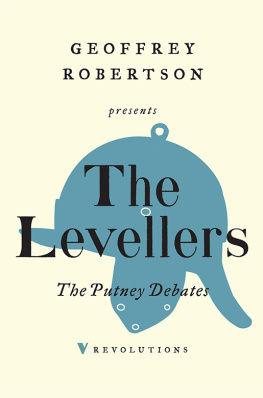
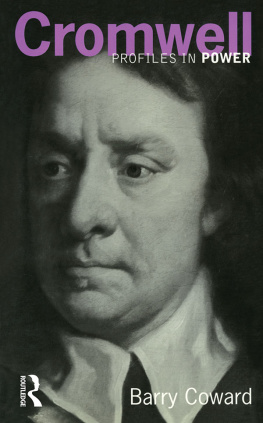
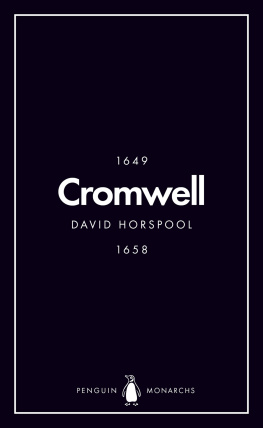
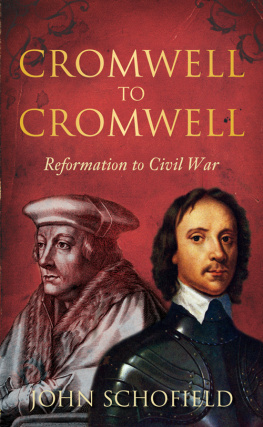

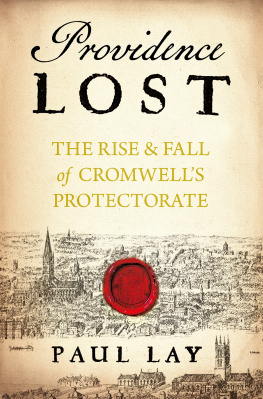
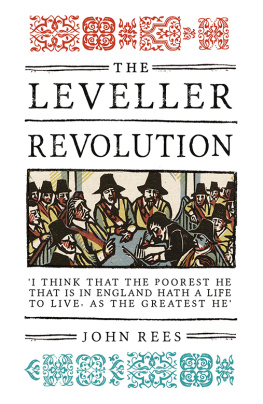
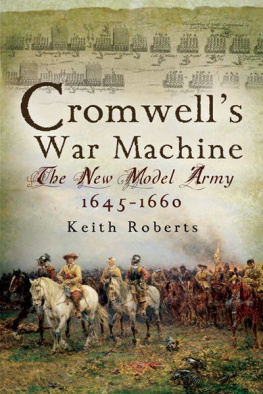
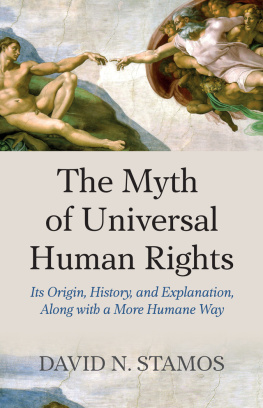
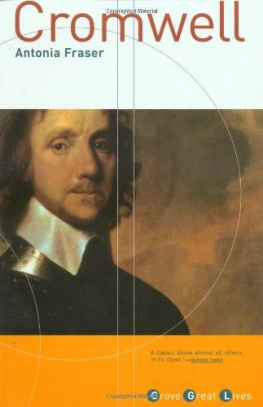
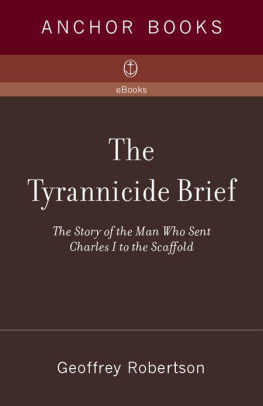

 REVOLUTIONS
REVOLUTIONS
